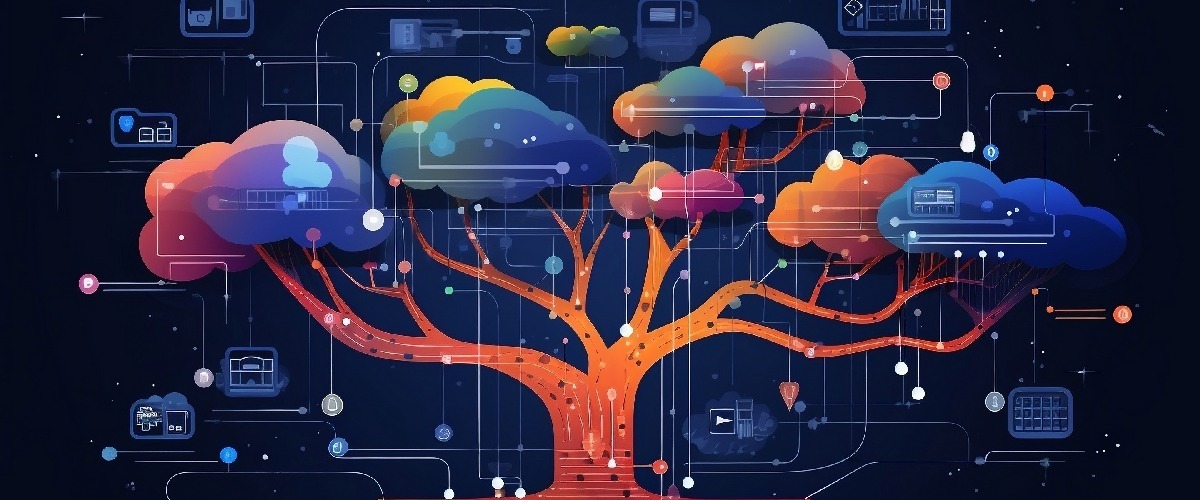Over the past year, there has been a sudden surge in interest in Artificial Intelligence (AI), particularly in generative AI. We are witnessing how generative AI models like ChatGPT are revolutionizing how we produce text, images, and audio content.
Despite being nascent, generative AI has loads of promise and potential in the technology space. Kuldeep Deshpande, the founder of Emergys, talks about how the “team has piloted 10 applications of generative AI in business functions such as legal, contracting, finance, purchase, and HR.”
Can generative AI also transform the way we approach data science? For instance, ChatGPT can be used in data analytics to create summaries and natural language explanations. Besides that, ChatGPT can also generate synthetic data for training machine learning models.
To that end, let’s discuss how generative AI can transform data science.
How Generative AI Will Transform Data Science
Generative AI has the potential to transform how enterprises process their business data. For instance, companies can replace existing data (fed into generative AI models) with their business-generated data.
In an interview with Datavarsity, David McGraw outlines that “Any company using generative AI technology with similar models and the same dataset as ChatGPT will see its products converge to match ChatGPT outputs.” He further explains that companies that train generative AI models on their data can hyperfocus the model to answer questions about their business objectives.
Effectively, generative AI can overcome bottlenecks in enterprise-level data analytics, which otherwise limit their problem-solving abilities. For instance, most data scientists can explore useful data patterns – but can only evaluate certain hypotheses. It leads to plenty of unexplored areas.
Generative AI can overcome these limitations by bypassing “human” biases and providing alternative ways to leverage the available data. It means generative AI models can develop and test hypotheses from all the available data sources. Furthermore, generative AI models can also create new data sources by gathering unstructured data into new structured data sources, which are critical for any enterprise.
Here are some of the capabilities of generative AI useful in data analytics
Generate and update business insights over time – and as and when the data changes.
- Produce and analyze many hypotheses each minute – and retain the strongest ones.
- Identify and augment relevant data sources (including external sources) to generate a composite hypothesis.
- Analyze data from complex ecosystems and sources, including spreadsheets, databases, and cloud-powered data storage.
- Ingest different data dimensions including text, images, videos, and time-series data – and identify useful patterns and connections. It begs the question – how can generative AI improve data analytics in supply chains, logistics, and demand forecasting? Let’s discuss that next.
The Use of Generative AI and Data Analytics in Supply Chains
For a long time, AI has been used to improve the efficiency and productivity of modern supply chains. AI solutions in supply chain management have improved inventory management, logistics, and smart manufacturing. A McKinsey study found that AI-enabled supply chain management has benefited companies with:
- 15% reduction in their logistics costs
- 35% improvement in inventory levels
- 65% increase in customer service levels
Jan Burian of IDC believes that “expectations related to generative AI are high in the supply chain arena.” Supply chain and logistics companies expect generative AI to provide more visibility into their supply chains. This can help them overcome challenges like cost escalation and volatile demand.
Here are some supply chain areas where generative AI and data analytics can play a productive role:
1. Data Analysis
Generative AI technology can help supply chain companies analyze data from diverse sources like purchase orders, shipment data, and invoices. This is useful for identifying accurate data patterns and areas of improvement.
2. Eliminate Supply Chain Bottlenecks
Generative AI can provide a detailed summary for each product or material, which is useful for warehouse operations and logistics planning. This could eliminate any bottlenecks in the overall workflow.
3. Supply Chain Training and Process Guidelines
Generative AI can also generate training material and process guidelines for internal and external purposes. Generative AI can develop the best practices for training resources in a comprehensive document.
4. Mutual Understanding Among Supply Chain Personal
Generative AI can also generate training material and process guidelines for internal and external purposes. Generative AI can develop the best practices for training resources in a comprehensive document.
Next, let’s discuss how Emergys can help in your next-gen AI implementation.
How Emergys can help with Generative AI
At Emergys, our technical experts deliver business value to our customers with their expertise in AI and Data Analytics technologies. As Kuldeep points out in this LinkedIn post, we are applying AI technology to manage supply chains in the following ways:
- Predicting supply chain blockages
- Identifying alternative sources of supply
- Identifying any vendor-specific risks
- Optimizing supply chain strategies
Learn how a Chicago-based legal research company leveraged our AI and Big Data expertise to improve their LPO and cost efficiency.



